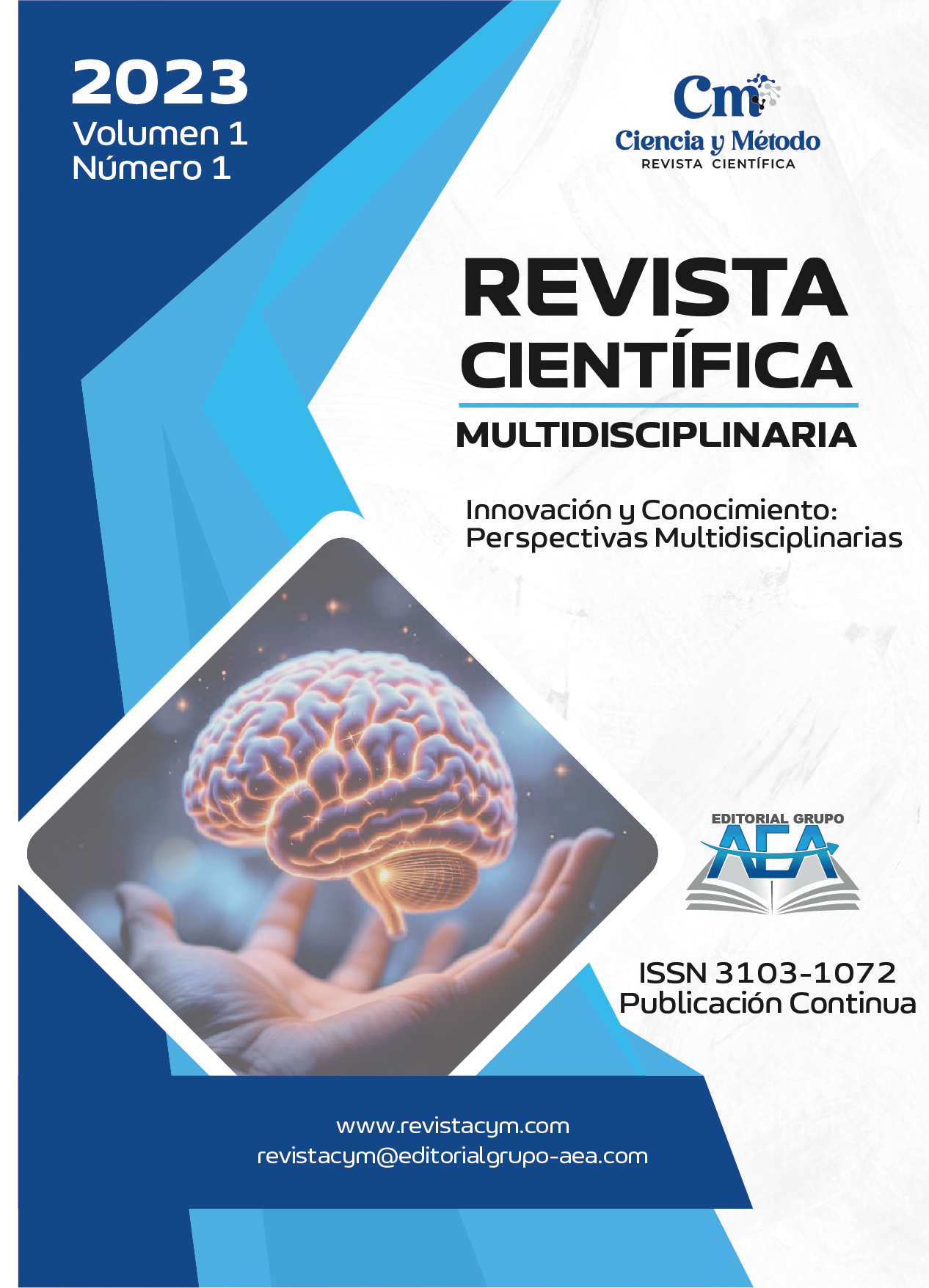Sustainable business models based on circular economy
Main Article Content
Abstract
The linear economic model has proven to be unsustainable in the face of current environmental and social challenges, which has prompted the adoption of the circular economy as a transformative alternative. In this context, this article conducts a systematic literature review, based on studies indexed in Scopus and Web of Science, with the aim of identifying and critically analyzing the typologies, barriers and success factors of sustainable business models that integrate circular principles. A qualitative methodology with thematic matrices was employed to synthesize findings and establish robust analytical frameworks. The results highlight two main models: product life-cycle extension and Product-as-a-Service, both with strong transformative potential but conditioned by organizational, cultural and technological barriers. In turn, key enablers such as public policies, cross-sector collaboration and emerging technologies are identified. The study concludes that the transition to circular models requires a holistic approach that articulates technological innovation, policy reforms and deep cultural change to achieve systemic and competitive sustainability.
Downloads
Article Details
Section

This work is licensed under a Creative Commons Attribution-NonCommercial 4.0 International License.
How to Cite
References
Antikainen, M., Uusitalo, T., & Kivikytö-Reponen, P. (2018). Digitalisation as an enabler of circular economy. Procedia CIRP, 73, 45–49. https://doi.org/10.1016/j.procir.2018.04.027 DOI: https://doi.org/10.1016/j.procir.2018.04.027
Bocken, N. M. P., Short, S. W., Rana, P., & Evans, S. (2014). A literature and practice review to develop sustainable business model archetypes. Journal of Cleaner Production, 65, 42–56. https://doi.org/10.1016/j.jclepro.2013.11.039 DOI: https://doi.org/10.1016/j.jclepro.2013.11.039
European Commission. (2020). A new Circular Economy Action Plan: For a cleaner and more competitive Europe. https://eur-lex.europa.eu/legal-content/EN/TXT/?uri=CELEX:52020DC0098
Franco, M. A. (2017). Circular economy at the micro level: A dynamic view of incumbents’ struggles and challenges in the textile industry. Journal of Cleaner Production, 168, 833–845. https://doi.org/10.1016/j.jclepro.2017.09.056 DOI: https://doi.org/10.1016/j.jclepro.2017.09.056
Geissdoerfer, M., Savaget, P., Bocken, N. M. P., & Hultink, E. J. (2017). The Circular Economy – A new sustainability paradigm? Journal of Cleaner Production, 143, 757–768. https://doi.org/10.1016/j.jclepro.2016.12.048 DOI: https://doi.org/10.1016/j.jclepro.2016.12.048
Ghisellini, P., Cialani, C., & Ulgiati, S. (2016). A review on circular economy: The expected transition to a balanced interplay of environmental and economic systems. Journal of Cleaner Production, 114, 11–32. https://doi.org/10.1016/j.jclepro.2015.09.007 DOI: https://doi.org/10.1016/j.jclepro.2015.09.007
Goodall, P., Rosamond, E., & Harding, J. (2020). The role of remanufacturing in a circular economy: A Delphi study of processes, benefits, and barriers. Journal of Cleaner Production, 274, 122964.
Herrera Sánchez, M. J., Casanova Villalba, C. I., Silva Alvarado, G. S. ., & Parraga Pether, P. V. (2021). Cultura tributaria mediante la capacitación contable a pequeñas y medianas empresas en Ecuador. Journal of business and entrepreneurial studie.
Herrera-Sánchez, M. J. (2021). Estrategias de Gestión Administrativa para el Desarrollo Sostenible de Emprendimientos en La Concordia. Journal of Economic and Social Science Research, 1(4), 56–69. https://doi.org/10.55813/gaea/jessr/v1/n4/42 DOI: https://doi.org/10.55813/gaea/jessr/v1/n4/42
Kalmykova, Y., Sadagopan, M., & Rosado, L. (2018). Circular economy – From review of theories and practices to development of implementation tools. Resources, Conservation and Recycling, 135, 190–201. https://doi.org/10.1016/j.resconrec.2017.10.034 DOI: https://doi.org/10.1016/j.resconrec.2017.10.034
Kirchherr, J., Reike, D., & Hekkert, M. (2017). Conceptualizing the circular economy: An analysis of 114 definitions. Resources, Conservation and Recycling, 127, 221–232. https://doi.org/10.1016/j.resconrec.2017.09.005 DOI: https://doi.org/10.1016/j.resconrec.2017.09.005
Lacy, P., Long, J., & Spindler, W. (2020). The circular economy handbook: Realizing the circular advantage. Palgrave Macmillan. https://doi.org/10.1057/978-1-349-95968-6 DOI: https://doi.org/10.1057/978-1-349-95968-6
Linder, M., & Williander, M. (2015). Circular business model innovation: Inherent uncertainties. Business Strategy and the Environment, 26(2), 182–196. https://doi.org/10.1002/bse.1906 DOI: https://doi.org/10.1002/bse.1906
Michelini, G., Moraes, R. N., Cunha, R. N., Costa, J. M. H., & Ometto, A. R. (2017). From linear to circular economy: PSS conducting the transition. Procedia CIRP, 64, 2–6. https://doi.org/10.1016/j.procir.2017.03.012 DOI: https://doi.org/10.1016/j.procir.2017.03.012
Mont, O., Plepys, A., Whalen, K., & Nußholz, J. L. K. (2017). Business model experimentation for sustainability: Drivers and barriers in the clothing industry. Journal of Cleaner Production, 172, 2146–2156.
Morseletto, P. (2020). Restorative and regenerative: Exploring the concepts in the circular economy. Journal of Industrial Ecology, 24(4), 763–773. https://doi.org/10.1111/jiec.12987 DOI: https://doi.org/10.1111/jiec.12987
Núñez-Cacho, P., Górecki, J., Molina-Moreno, V., & Corpas-Iglesias, F. A. (2018). What gets measured, gets done: Development of a circular economy measurement scale for building industry. Sustainability, 10(7), 2340. https://doi.org/10.3390/su10072340 DOI: https://doi.org/10.3390/su10072340
Ritzén, S., & Sandström, G. Ö. (2017). Barriers to the circular economy – Integration of perspectives and domains. Procedia CIRP, 64, 7–12. https://doi.org/10.1016/j.procir.2017.03.005 DOI: https://doi.org/10.1016/j.procir.2017.03.005
Stahel, W. R. (2019). The circular economy: A user's guide. Routledge. DOI: https://doi.org/10.4324/9780429259203
Tukker, A. (2015). Product services for a resource-efficient and circular economy – a review. Journal of Cleaner Production, 97, 76–91. https://doi.org/10.1016/j.jclepro.2013.11.049 DOI: https://doi.org/10.1016/j.jclepro.2013.11.049
Whalen, K. A., Berlin, C., Huesemann, M., Ekberg, J., & Barletta, I. (2018). All they do is win: Lessons from successful circular business models. Journal of Industrial Ecology, 22(3), 515–528.





